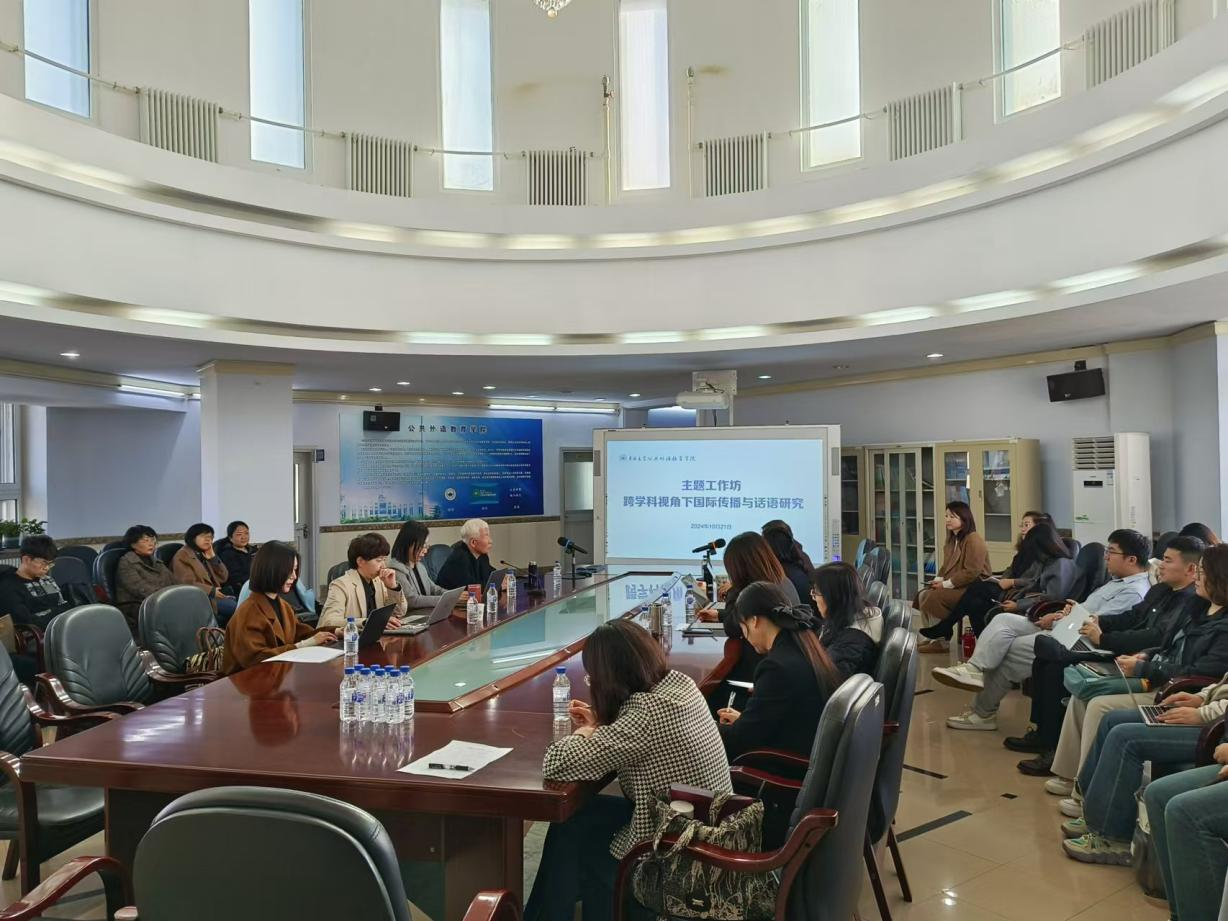On the afternoon of October 21, 2024, a workshop themed "International Communication and Discourse Studies from an Interdisciplinary Perspective" was successfully convened at the School of Foreign Language Education. Chaired by Professor Pan Haiying, Dean of the School of Foreign Language Education, the workshop brought together distinguished experts, including Professor Xin Bin from the School of Foreign Languages and Cultures at Nanjing Normal University, Professor Tian Hailong from Tianjin Foreign Studies University, Professor Wang Xiwei, Deputy Director of the Office of Humanities & Social Sciences Research at Jilin University, Professor Ba Dianjun, a Kuang Yaming Distinguished Professor at Jilin University, Professor Zhang Jin, Vice Dean of the School of Foreign Language Education at Jilin University, Professor Zhang Rui, Vice Dean of the School of Foreign Studies at Jilin University, and Zheng Bowen, a full-time teacher at the Northeast Center for Chinese International Education at Jilin University.
Experts from various disciplines shared insights on how interdisciplinary collaboration can enhance the effectiveness and impact of international communication. Professor Xin Bin suggested that understanding public opinion and studying discourse solely from a linguistic perspective is insufficient; an interdisciplinary approach that emphasizes the role of media in international communication is necessary. Professor Wang Xiwei, focusing on international communication research and talent cultivation in the context of interdisciplinary intersection, identified current challenges in international communication from three aspects: social robots, algorithms, and large models. Professor Ba Dianjun highlighted the necessity of interdisciplinary talent cultivation in addressing the talent structure and soft power issues in international communication.
Professor Zhang Jin, drawing on her background in non-general languages, explored the impact of language and cultural barriers on the acceptance of international communication content. Professor Zhang Rui, using the Latin American literature "One Hundred Years of Solitude" as a reference, emphasized the importance of considering readers' acceptance and response in international communication to avoid stereotypes. Zheng Bowen, in combination with her experience in international Chinese education and taking the experience of "Chinese + Traditional Chinese Culture" at Jilin University as an example, introduced the practical exploration of enhancing China's international communication capabilities.
Finally, Professor Tian Hailong provided interpretations of the three key terms "interdisciplinary," "international communication," and "discourse studies." He suggested that "interdisciplinary" should be based on one's primary discipline while incorporating insights from others; "international communication" should focus on reciprocity, with foreign language professionals bearing significant responsibilities; "discourse studies" can start from the perspective of discourse interaction, placing importance on the dynamic construction and impact of discourse within specific social contexts.
The successful holding of this themed workshop provided a valuable platform for academic exchange and intellectual collision for teachers and students. Experts and scholars from different disciplinary backgrounds shared their insights, jointly exploring new perspectives and dimensions in the field of international communication, greatly enriching the breadth and depth of research.
